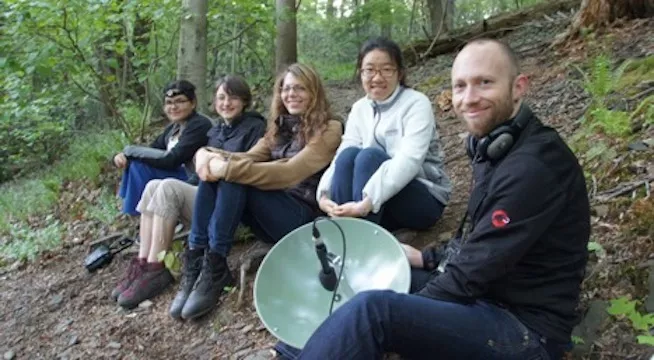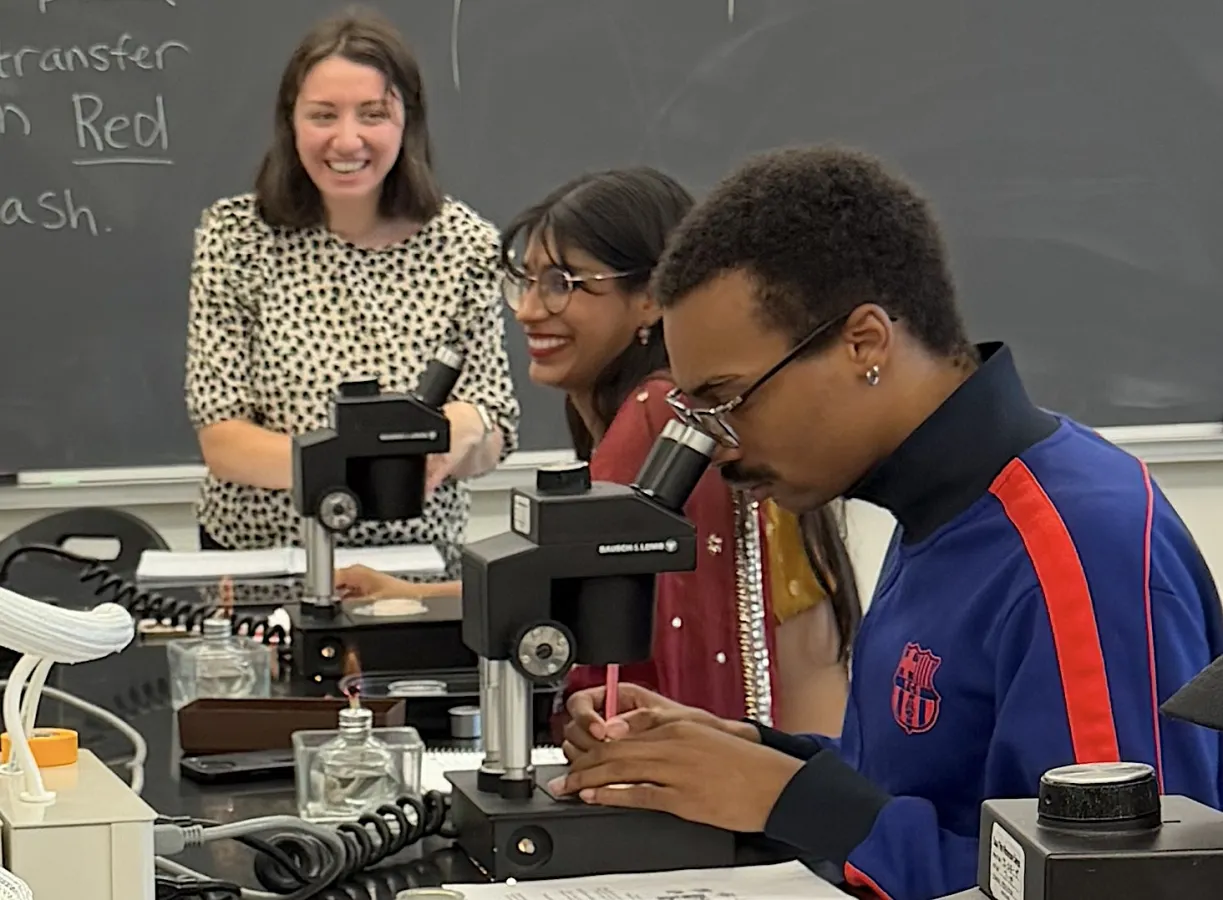Academic Support

Each course in our introductory series Biology 001 & 002 is team-taught by a staff of 8 instructors. Our intermediate courses and advanced seminars are taught by individual professors. All instructors are committed to supporting and inspiring students. Students are encouraged to discuss course material, its applications, and careers in biology and related fields in office hours and by appointment.
Reaction Centers
Reaction Centers are student-centered spaces, for students in BIOL 001 or BIOL 002, and are designed to enhance comprehension and critical thinking through facilitated collaborative problem solving. Advanced biology students work as "Catalysts" at the Reaction Center meetings to facilitate peer learning. Catalysts are trained in pedagogical principles and practices by the program's coordinators.
BIOL 001 or BIOL 002 students are encouraged to attend Reaction Centers to test out their evolving ideas and problem-solving strategies. Many studies have demonstrated that cooperative work in small, heterogeneous groups leads to better learning outcomes.During the meetings, students work together with Catalysts to clarify concepts and puzzle out problems. Snacks are available to facilitate these efforts in Singer Hall on the following days and times:
Non-quiz weeks: Sun, Tues & Thu 7-9 p.m.
Quiz weeks: Sun 7-9 pm, Tues 7-10pm & Thu 7-10p.m.
BIOL-SP
The Biology Department welcomes students from different backgrounds, experiences, and levels of preparedness. BIOL-SP helps us achieve this goal by providing students the opportunity to take part in an encouraging, challenging, and inclusive learning community. We encourage students to apply from a range of backgrounds and experiences in biology, including people who feel insecure about their preparation for the rigors of college-level biology and/or students who identify as first generation, low income (FLI).
Students enroll in BIOL-SP during the same semester they are enrolled in BIOL 001 or BIOL 002. Students must apply to get into BIOL-SP. Admission to the course is based on a commitment to both hard work and growth as well as an interest in STEM, rather than GPA or previous coursework.
During BIOL‑SP workshops, students work in small and collaborative groups with a faculty member to extend, deepen, and synthesize their understanding of the introductory biology course material. Students will also hone study and quantitative skills. We strive to provide an enriched experience for students by helping them foster a supportive cohort of peers to promote their academic success.
Corequisite: Students must apply to get into BIOL SP and concurrently enroll in either BIOL 001 or BIOL 002 (including a lab section).
Lab Support and GRASSS
Students are supported in the laboratory sections of our team-taught introductory biology courses by two members of the instructional staff and a student teaching assistant (TA). TAs also host evening GRaphics And Statistics Software Sessions (GRASSS) to help introductory biology students analyze their experimental data using graphing and statistical software. Our introductory biology courses provide substantial opportunities for laboratory data collection, data analysis and writing. GRASSS give students an opportunity to work collaboratively with their peers and TAs to critically analyze data.
GRASSS are held in Singer Hall on Sundays from 6-7 pm EST.
Dean's Tutor Program
The Student Affairs Division funds individual tutors for students. This program is available for students who have tried departmental resources such as instructor office hours and Reaction Centers, but still have a demonstrated need. Student Affairs also funds individual tutors for students who have particular documented disabilities.
NSE Student Success Toolkit
The resources and advice in the NSE Student Success Toolkit are collected and shared by your fellow students to help you thrive in your studies at Swarthmore.




